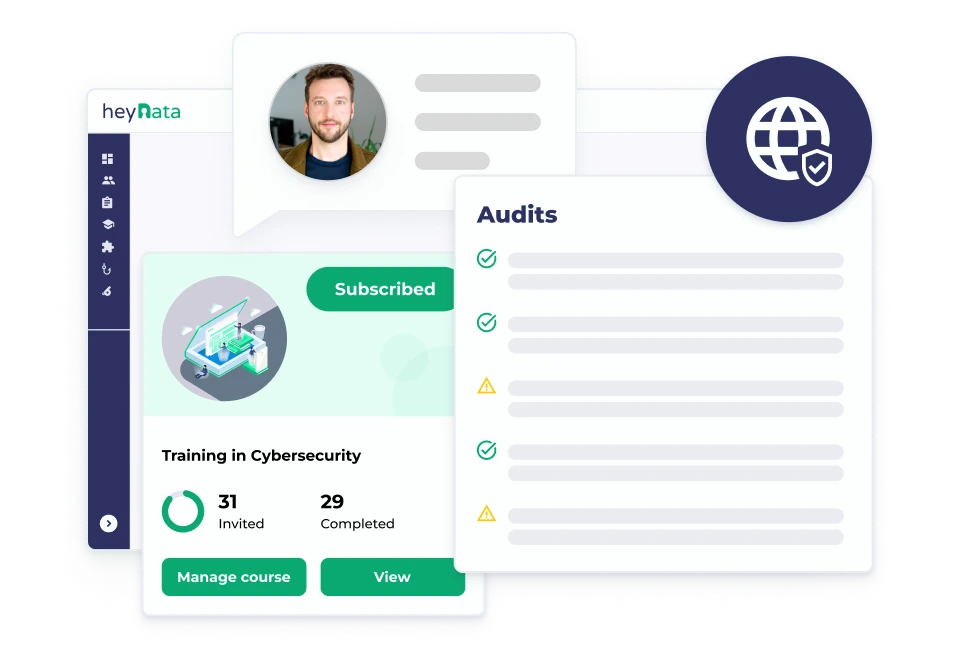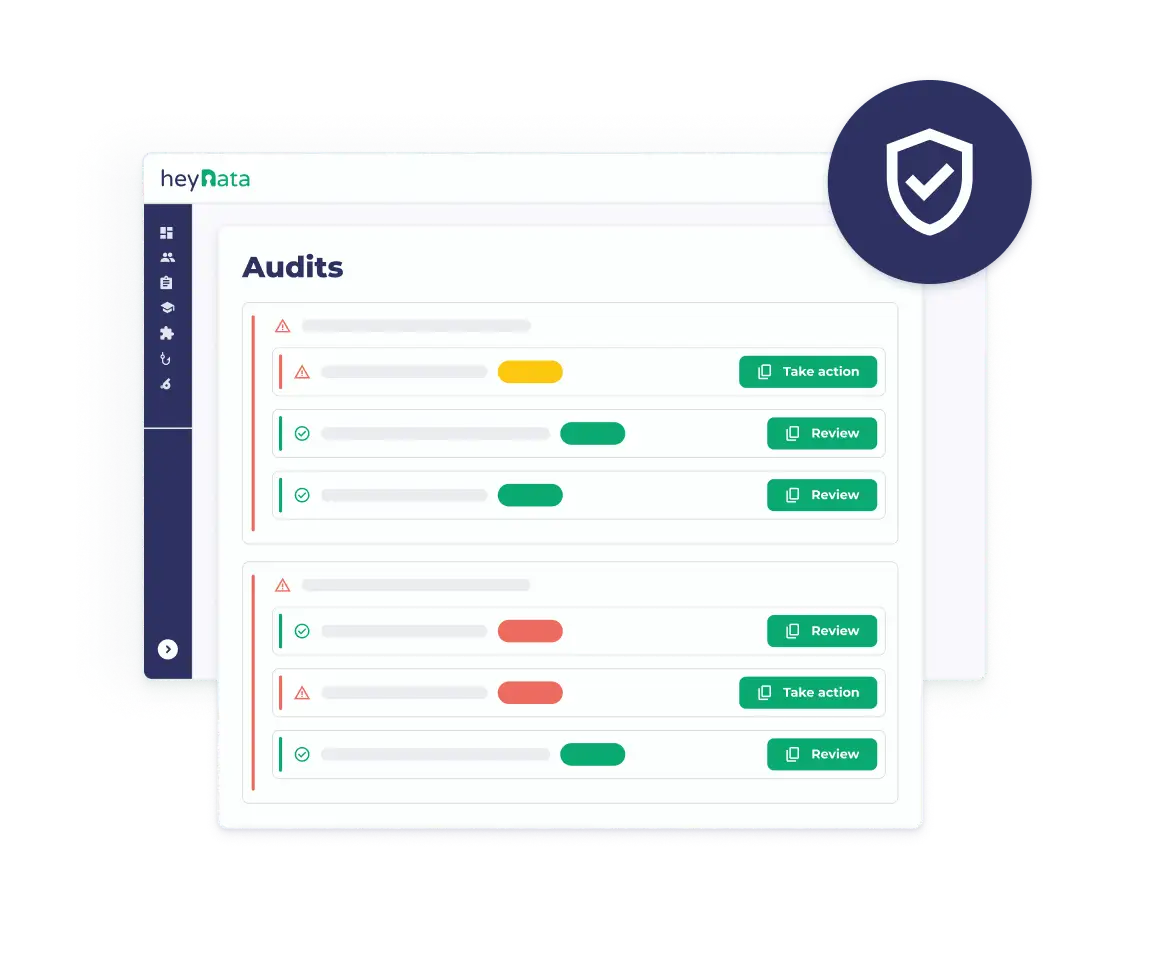Table of contents

Why Choosing the Data Protection Audit from heyData?
Improve your data protection with the digital audit from heyData. Our thorough assessment identifies gaps and improves compliance with data protection regulations. Increase efficiency and effectiveness with an average processing time of just two hours for all audit sheets.
How Our Process Works
1
Completing the Questionnaires
Our platform offers tailored audit sheets for different departments, like marketing or finance, to gather the information we need. Share access with colleagues and rely on our Privacy Success team for any support.
2
Data Review & Audit Call
Once all questionnaires are complete, we assess your responses and create your compliance documents. Then, we schedule an audit call to review the results, answer questions, and discuss next steps.
3
Compliance Documentation
We provide a full set of compliance documents, including an audit report, privacy statements, processing records, technical & organizational measures, and other key materials.
4
Ongoing Support
After the audit call, our Privacy Success team is available to help with follow-up questions and additional guidance.
What is a Data Protection Audit and Why is it Important?
A data protection audit is a comprehensive process for reviewing and assessing the data protection practices of your organization. It serves to ensure compliance with data protection laws such as the GDPR. The GDPR audit identifies potential data protection risks, examines past violations, and makes recommendations for improving data protection practices. This is important to maintain the trust of customers, partners, and other stakeholders, and to avoid legal sanctions and reputational damage.
What Results Does a Data Protection Audit Deliver?
The results of our data protection audit include a detailed report that contains specific advice on how to improve data protection compliance. This report is discussed with our data protection experts and explained in an understandable way. It provides a clear overview of the implemented data protection measures, identifies potential deficiencies or vulnerabilities, and makes recommendations to strengthen data protection. In addition, the report documents the data protection measures already implemented and serves as a solid foundation for compliance with data protection regulations.
FAQ
A data protection audit is necessary to ensure that organisations process personal data in a lawful and secure manner. The GDPR imposes significant obligations to protect personal data. By conducting a data protection audit, you can ensure compliance, identify risks, and implement necessary improvements.
A data protection audit can be conducted internally by an organisation's data protection officer or data protection team. Alternatively, the organisation can engage external auditors or data protection officers who specialise in data protection and GDPR compliance. The choice depends on the organisation's resources, expertise, and specific requirements.
A data protection audit usually includes the following essential components:
- Review of data protection policies and procedures.
- Assessment of the data processing activities and the legal basis for the processing.
- Review of data protection and security measures.
- Evaluation of procedures to safeguard data subjects' rights and to comply with the GDPR.
- Analysis of data breach management and notification process.
- Evaluation of contract processing agreements with service providers and third parties.
- Identification of gaps or non-compliances.
The frequency of data protection audits depends on various factors, such as the size of the organisation, the type of data processing activities, and the risk associated with data processing. Although the GDPR does not prescribe a specific frequency, it is recommended to conduct regular audits, at least annually as is the case with heyData, or when there are significant changes in data processing operations.
After our data protection audit, the organisation receives a detailed report on the findings, recommendations and identified non-conformities. Based on this report, the organisation can develop an action plan to address the issues identified during the audit. The necessary changes and improvements should then be implemented to strengthen data protection and ensure compliance with the GDPR.
Yes, failure to comply with the General Data Protection Regulation can result in significant fines. Depending on the type and severity of the breach, organisations can be fined up to €20 million or 4% of their annual global turnover - whichever is higher. It is critical for organisations to prioritise data protection and conduct regular audits to minimise the risk of data breaches.
Conducting regular data protection audits demonstrates an organisation's commitment to protecting personal data and complying with data protection regulations. This increases the trust of partners and customers by guaranteeing that their data is handled responsibly and securely. By conducting audits and demonstrating GDPR compliance, organisations can improve their reputation and build stronger relationships with their stakeholders.
Although the GDPR does not provide a specific framework for audits, there are guidelines and best practices to help organisations conduct data protection audits. For example, the International Organisation for Standardisation (ISO) has developed the ISO/IEC 27701 standard, which provides guidelines for auditing data protection management systems. In addition, national data protection authorities and data protection organisations may offer specific guidance adapted to local requirements.
Yes, organisations can bring in external experts such as data protection officers or auditors who specialise in GDPR policies and data protection issues. These experts can provide valuable insight and expertise and ensure a thorough and independent assessment of an organisation's data protection practices.



